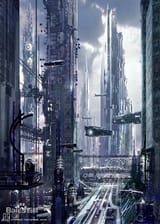>>17947543
>I'm not sure I even understand communism as a concept or that Marx had any idea himself
I think his idea was that it'd be a radical expansion of freedom but he didn't really lay down what it would look like because he distrusted "utopian" things. From what I can tell, communism is supposed to be a society without economic exploitation, political domination, or ideological intimidation.
Part of the idea here is that capitalism relates to labor in a fundamentally different way. Like in a mostly agricultural society, peasants could get rid of the aristocrats and go back to farming on their plots of land. But the proletariat which is created by capitalism is also necessary for the mode of production's own expansion, so the victory of the proletariat is not just to abolish capitalism but also the conditions of the proletariat's own existence as a class. In communism, there is no bourgeoisie but there's no proletariat either, it's a fundamentally different mode of production and way of living.
>What does it even mean to eliminate the division between manual and intellectual labor? You're a nuclear physicist for half the work week and a farmer the other half?
Yeah. In principle. If you want to. There's no caste system between the "thinkers" and "doers" really.
>Or eliminating the division between town and country, what does that actually mean? The state that doesn't exist spreads everyone out evenly? And how would any of it work without a state? How would you plan production/distribution according to social utility without a state?
The town/country thing is pretty dated, very 19th century. I think the idea was to make agriculture more mechanized, and also eliminate the problem of overcrowded urban industrial slums. On the state, they had this belief that "the government of persons" (the state) would "die out" and be replaced by "the administration of things, and by the conduct of processes of production."
